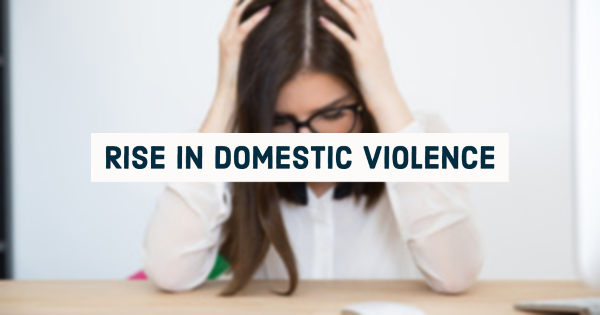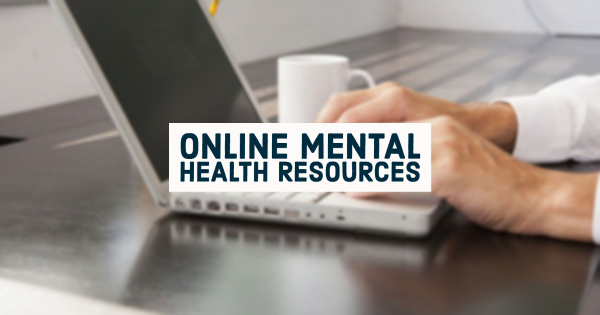
COVID-19 and the long winter months are having devastating effects on our relationships and mental health. “As if our communal weariness with COVID-19 weren’t bad enough, now we’re about to face the bleak realities of subdued holiday celebrations and record-setting, frightening surges in coronavirus cases – compounded by the cold, wet, and dark days of winter,” UC Davis Health writes.
Worldwide, the coronavirus pandemic is taking a considerable toll on mental health. A recent report from the Centers of Disease Control and Prevention (CDC) shows depression and anxiety rates are skyrocketing, with people across the U.S. experiencing four times as many symptoms as they reported last year.
Health-related worries, financial hardship, isolation, lack of connection, and the disruptions of normalcy and important life events, like senior years of high school and college, graduations, and weddings — among other factors — are worsening our collective mental health.
At the same time, the so-called “winter blues” or its more severe, clinical variant Seasonal Affective Disorder (SAD) starts to take hold in November and December and lasts well into the winter months. The condition affects as many as 10 million people, according to Boston University. Plus, there are many more who do not quite fall under the clinical definition but experience a serious uptick in depressive symptoms until spring.
Add relationship problems and divorce into that mix, and the outlook can be truly troubling. What should you do if you have no choice but to contend with COVID-19, the dreary winter months, divorce and mental health issues all at once?
Learn more about what Americans going through divorce are experiencing during this time, and learn about the resources and support available to you.
Between Quarantine and Winter Blues, Many Couples Struggle to Get Along

It is no coincidence that divorce is on the rise. According to The National Law Review, interest in legal separation and divorce rose by 34% as early as April 2020, and the overall divorce rate is projected to increase by 10 to 25% by early 2021.
What is to blame? Why are more married couples calling it quits?
One issue is financial strain. “People have lost jobs, people have been furloughed, people are unable to pay their rent, people are unable to pay their mortgages — these things are big financial stressors on marriages,” CBS News reports. Lack of job security and struggles to afford day-to-day expenses are driving many couples to argue more often than usual, and even consider divorce.
Secondly, couples are setting unrealistic expectations. Stay-at-home orders and/or guidelines to avoid socializing and taking unnecessary trips out of the house are having unintended consequences. Often, circumstances defy expectations, and couples are left navigating the reality of the pandemic.
For example, couples may have assumed working from home would mean spending more time together. The fact remains that working from home is still working. Workers must put in the time and devote it to their work, not spouses or family. Plus, spouses in complex, time-consuming professions, like aerial lidar and digital imaging services, may have to put in overtime and work odd hours — even while working from home.
Likewise, spouses may have assumed that being at home and spending more time together would strengthen their marriages. Unfortunately, that is only the case for a select few. It turns out that, for most people, some personal space is healthy — and necessary — for the marriage to work. Being together more often only puts a greater strain on already struggling relationships.
Third, there are parenting challenges. COVID-19 is presenting unique parenting challenges. Many parents are now tasked with juggling work and helping their children while they attend fully or partially remote, online classes. Now is the time for parents to do their research about how to help your quarantined kid learn at home. Any tips or additional resources may help relieve some of the pressure on busy parents.
Similarly, many spouses are turning to divorce and mental health counselors after having fundamental disagreements about the severity of the coronavirus, the necessary precautions and safety measures to be taken, and ways to keep children safe from the virus.
Finally, unconventional holiday gatherings are taking place. In a typical year, many couples with plans to divorce power through the holidays and delay their plans until after seeing friends and family. Now, with many unable to travel and interactions with family taking place exclusively on Zoom, spouses are putting their divorce and mental health first. In other words, if it suits them to begin the process sooner, they are doing it.
Divorce and mental health problems are more rampant than ever before. The coronavirus is presenting unique challenges to married couples and parents, and these challenges will only grow worse during the holidays and frigid winter months.
Rise In Domestic Violence

Unfortunately, divorce and mental health problems are not the only troubles on the rise. Nationwide, spouses are reporting more instances of domestic violence amid COVID-19.
In Williamsport, Pennsylvania alone, the local women’s shelter welcomed 500 women as of July 1. By comparison, the Young Women’s Christian Association (YWCA) Wise Options program helped just 400 women at the same time last year.
Unfortunately, the domestic violence that is taking place is markedly worse. According to the Wise Options’ Program Director Amber Morningstar, “incidents like strangulation, death threats, and gun violence” are increasingly common.
Morningstar and others want to make it clear that women still have options, even in the midst of a global pandemic. The shelter continues to welcome women with open arms, and women are able to meet with counselors virtually or in-person with appropriate social distancing. The shelter can accommodate women immediately — right after the holidays and during the thick of winter.
Married women should not live in fear of their husbands discovering credit card transactions and turning to violence — or of their husbands turning to violence for any other reason for that matter. Women should not live a life behind sound proof glass in an unsafe home.
Women’s shelters across the country are seeing an increase in numbers during the pandemic. If you do not feel safe, go to a shelter as soon as possible. From there, professionals will help you work out what comes next when it comes to divorce and mental health.
Couples Going Through Divorce During Holidays May Struggle Mentally

The holidays are typically viewed as a time to come together and to celebrate. At the very least, they may be an excuse to buy that thing you always wanted — whether that means it is time to buy a limited edition art print or any other rare item. For divorcing or recently divorced couples, the holidays look very different.
A recent divorce right before or during the holidays can easily complicate plans. While divorce and mental health can be — and should be — a priority in many cases, divorce during the holidays may mean divvying up time with children on Thanksgiving, Christmas Eve, and/or Christmas for the first time. This can be a difficult time no matter when you divorce. If you divorce right before the holidays, the transition can be even more difficult.
To make it a bit easier, Divorce Magazine recommends having a clear and decisive plan. Once you have a plan, you can communicate that plan to your children. Keeping the dialogue open, honest, and clear will take some of the weight off your shoulders.
Start new traditions to replace old ones. Instead of dwelling on what you no longer have, work out new traditions to celebrate with friends and family. Keep it fun and light-hearted for young kids, and make sure to start one tradition just for you. Try to think of something that will truly benefit your well-being and mental health.
Finally, when kids return from your ex-partner’s house or after spending time with their family, keep the questions to a minimum. Don’t make kids feel like they are getting the third degree. As long as they are happy and healthy, that’s all that matters. Do not put them in the middle.
According to popular narratives, the holidays bring people together. People are happier. They splurge on friends and family, or — at the very least — take the opportunity to invest in necessities, like fire protection system design software for the family business. That is not always the case, however.
More married couples are calling it quits, thanks to COVID-19, and many are doing it sooner without large, in-person gatherings to attend. Plan ahead, start new traditions, and keep questions to a minimum to ensure that your divorce and mental health stay among your top priorities.
Seeking a Divorce? Opportunities for Free Legal Services

If you are one of many seeking divorce during this time, the costs may be of particular concern to you — especially due to COVID-19 and the holidays. Thankfully, there are several options available to you, and, if you play your cards right, those options may include free legal counsel as well.
Do your research and explore all options in your local area.
For instance, in Murfreesboro, Tennessee, divorce attorney W. Scott Kimberly gives away one free representation per year, just in time for Valentine’s Day. “Applicants are encouraged to share their personal story and why they want a divorce on their entry,” The Daily News Journal writes. Kimberly will accept applications until Valentine’s Day, and he will select a winner the following Monday, on Feb. 17.
Last year, the submissions were so compelling Kimberly was unable to choose a single winner. Instead, he extended free services to two, separate parties.
Trying out your luck is just one of the many options available to you. For a more conventional path, look into other resources for free legal counsel.
Every year, Texas’s The Justice Center hosts a free, day-long event offering free legal counsel for any and all matters dealing with family law. The event, called Family Law Day, took place entirely remotely on June 26 this year. Keep an eye on the Justice Center for the status of next year’s event. During these events, those interested are able to arrange free, one-on-one consultations, pose specific questions to attorneys and receive a call back, and/or attend webinars addressing popular issues. During these webinars, “local legal professionals will cover topics like how to file for divorce, child support, parenting plans, how to enforce a court order, and how to represent yourself in the courtroom,” 11 News reveals.
These free events are not exclusive to Texas. Look for similar events in your local area.
If you are part of a special group or niche, you may be eligible for free representation on that basis as well. For example, if you own a nonprofit, you may be able to team up with a nonprofit lawyer to help work out the specifics with your soon-to-be ex-spouse.
Divorce and mental health problems go hand-in-hand. Lawyers know this, and many do what they can to make the process a little easier, including offering free or low-cost services from time to time.
Online Mental Health Resources

Once again, divorce and mental health problems are closely linked. That means that a basic understanding of the stressors COVID-19 and winter put on marriages and even knowledge of free resources for legal representation from a family law firm may not be enough. Often, it is wise — and necessary — to learn more about mental health and know where to find support if you need it.
There are all kinds of resources available to those who need it, and remember there is no shame in seeking professional help. While exercise and hobbies may help improve your mental health, they may not be enough on their own. You can only fasten so many bulkhead connectors (if your electrician career is your passion) before the realities of divorce creep up on you.
Consider supplementing exercise and hobbies with professional help. Attend group counseling, meet with a counselor one-on-one, or talk to your doctor or a psychiatrist about medication. For those who do not know where to start, www.mentalhealthfirstaid.org is a great place to find a comprehensive list of available resources.
During the average year, there are as many as 827,000 divorces. Due to COVID-19 and the ongoing presence of the virus during winter, that number will be much higher in 2020.
If you are among the recent divorcees, talk to a lawyer and a counselor about divorce and mental health and the steps you can take to move forward.



